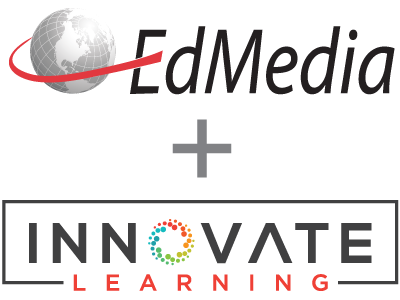
The Impact of Findability on Student Perceptions of Online Course Quality and Experience
PROCEEDINGS
David Robins, Bethany Simunich, Valerie Kelly, Kent State University, United States
AACE Award
EdMedia + Innovate Learning, in Victoria, Canada ISBN 978-1-939797-03-2 Publisher: Association for the Advancement of Computing in Education (AACE), Waynesville, NC
Abstract
This study proposed to investigate whether “findability”, an aspect of usability, is an important component in student perceptions of/satisfaction with online courses and, as such, should be considered more heavily in online course design. Using standard usability testing measures, such as eye-tracking, time-on-task, and think-alouds, participants were asked to find essential course components in either a course with high findability or a modified version of the course with low findability, in order to determine the impact on student perceptions of course quality and experience. Participants rated those courses with high findability as a better overall experience (based on five dimensions). The researchers believe this study to be the first in a series of studies that will eventually lead to determining if findability and/or usability have a direct impact on student learning outcomes and, if so, what are the standards in these areas that should be set forth for online courses.
Citation
Robins, D., Simunich, B. & Kelly, V. (2013). The Impact of Findability on Student Perceptions of Online Course Quality and Experience. In J. Herrington, A. Couros & V. Irvine (Eds.), Proceedings of EdMedia 2013--World Conference on Educational Media and Technology (pp. 1122-1129). Victoria, Canada: Association for the Advancement of Computing in Education (AACE). Retrieved August 11, 2024 from https://www.learntechlib.org/primary/p/112100/.
© 2013 Association for the Advancement of Computing in Education (AACE)
References
View References & Citations Map- Barnum, C.M. (2002). Usability testing and research. New York: Longman.
- DeTure, M. (2004). Cognitive style and self-efficacy: Predicting student success in online distance education. The American Journal of Distance Education, 18(1), 21-38.
- Fisher, E.A. & Wright, V.H. (2010). Improving online course design through usability testing. Journal of Online Learning and Teaching, 6(1), 228-245.
- McAuley, E., Duncan, T.E., Wraith, S. (1991). Self-efficacy, perceptions of success, and intrinsic motivation for exercise. Journal of Applied Social Psychology, 21, 139-155.
- Morville, P. (2005). Ambient Findability. Sebastopol, CA: O ’ Reilly.
- Rubin, J., Chisnell, D. & Spool, J. (2008). Handbook of usability testing: How to plan, design, and conduct effective
- Zaharias, P. & Poylymenakou, A. (2009). Developing a Usability Evaluation Method for e-Learning Applications: Beyond Functional Usability. International Journal of Human-Computer Interaction, 25(1), 75-98.
- Zimmerman, B.J. (2000). Self-efficacy: An essential motive to learn. Contemporary Educational Psychology, 25, 82-91.
These references have been extracted automatically and may have some errors. Signed in users can suggest corrections to these mistakes.
Suggest Corrections to ReferencesCited By
View References & Citations Map-
Designing Effective Online Course Layout-Structure for Success
Zhuo Wang, Audrey Cutler & Joseph Brightman, Towson University, United States
Society for Information Technology & Teacher Education International Conference 2016 (Mar 21, 2016) pp. 2421–2424
-
Orienting Students to the Online Learning Environment: Guidelines for Instructional Designers
La Tonya Dyer & Zhuo Wang, Towson University, United States
Society for Information Technology & Teacher Education International Conference 2016 (Mar 21, 2016) pp. 1995–2001
These links are based on references which have been extracted automatically and may have some errors. If you see a mistake, please contact info@learntechlib.org.
